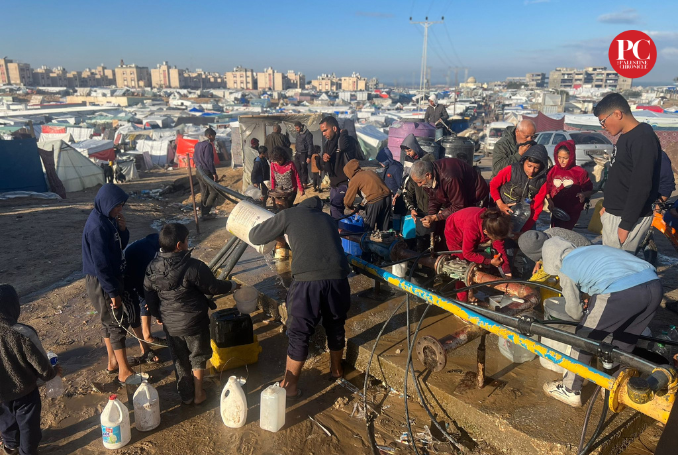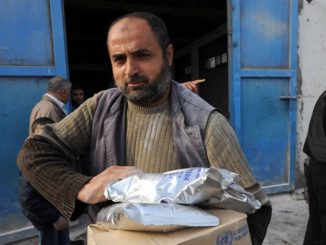
“What they have, if you look closely, is survival conditions. And barely. They’re holding on by a thread.”
A UN humanitarian affairs officer has said there are no living conditions in the besieged Gaza Strip, only “survival conditions.”
“We really should not speak about living conditions in Gaza because none of them have living conditions,” Yasmina Guerda, a humanitarian affairs officer from OCHA, told a UN press briefing in Geneva on Tuesday.
“What they have, if you look closely, is survival conditions. And barely. They’re holding on by a thread,” she added.
Guerda, who had returned from spending three months in Gaza, said humanitarian assistance in the enclave since October 7, has never been “near enough” to meet the population’s needs.
"We really should not speak about living conditions in #Gaza because none of them have ?????? conditions.
What they have, if you look closely, is ???????? conditions. And barely. They’re holding on by a thread." – Yasmina Guerda, @UNOCHA pic.twitter.com/1Sx81zC4NZ
— United Nations Geneva (@UNGeneva) June 25, 2024
“We try to measure and quantify the suffering that Palestinians of Gaza have been facing” for the past few months, she said. “And we do that with figures: the total displaced, the liters of water they get every day, the truckloads of aid that get to cross in every week.”
“But it doesn’t matter,” Guerda stressed. “Those numbers, they’re never near enough to meet the food, shelter, health, and other needs of a population that has lost nearly everything – their jobs, their roofs, their clothes, access to their bank accounts, access to privacy.”
Guerda noted, “I’ve heard and seen first-hand stories that will haunt me for the rest of my very privileged life.”
‘No Safe Corner’
In most humanitarian crises, displaced people could eventually find some sort of safety, but the past nine months have confirmed “there is no safe corner” in Gaza, said Guerda.
“And in most humanitarian responses, displaced people could eventually access reliable humanitarian support,” she said. “But delivering aid in Gaza is a daily puzzle.”
She also praised the strength of people in Gaza: “Civilians in Gaza are not weak people. They are far from helpless.”
“They need decision-makers to finally make a decisive gesture to put an end to the relentless way in which they are being knocked down after every attempt to get back up,” she said. “And they need the support of the rest of the world to do that.”
Rising Death Toll
Currently on trial before the International Court of Justice for genocide against Palestinians, Israel has been waging a devastating war on Gaza since October 7.
According to Gaza’s Ministry of Health, 37,658 Palestinians have been killed, and 86,237 wounded. Moreover, at least 11,000 people are unaccounted for, presumed dead under the rubble of their homes throughout the Strip.
Palestinian and international organizations say that the majority of those killed and wounded are women and children.
The Israeli war has resulted in an acute famine, mostly in northern Gaza, resulting in the death of many Palestinians, mostly children.
The Israeli aggression has also resulted in the forceful displacement of nearly two million people from all over the Gaza Strip, with the vast majority of the displaced forced into the densely crowded southern city of Rafah near the border with Egypt – in what has become Palestine’s largest mass exodus since the 1948 Nakba.
Israel says that 1,200 soldiers and civilians were killed during the Al-Aqsa Flood Operation on October 7. Israeli media published reports suggesting that many Israelis were killed on that day by ‘friendly fire’.
(PC, Anadolu)








